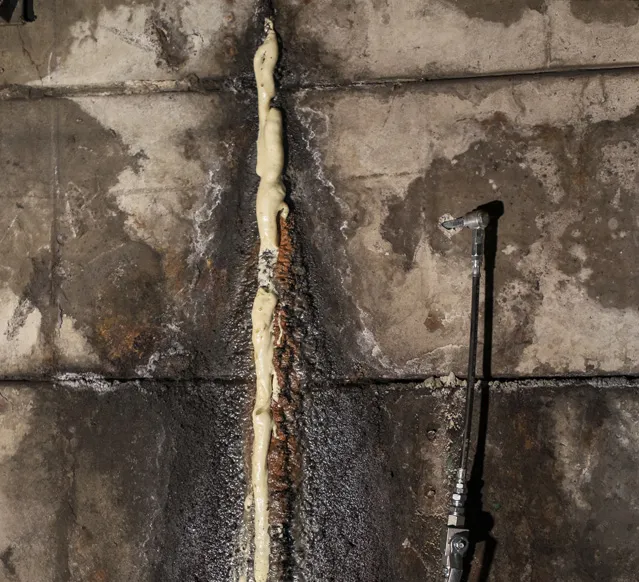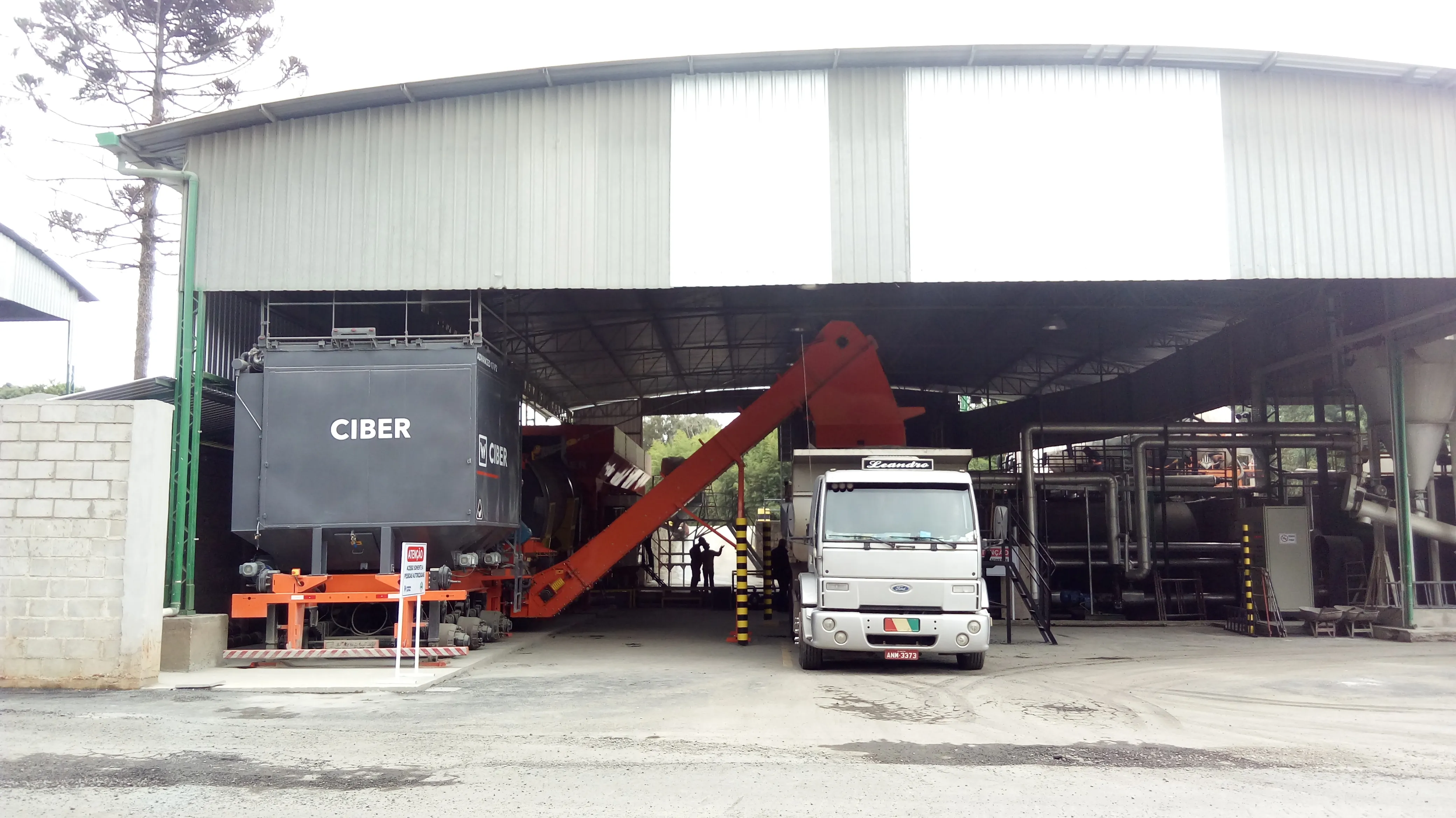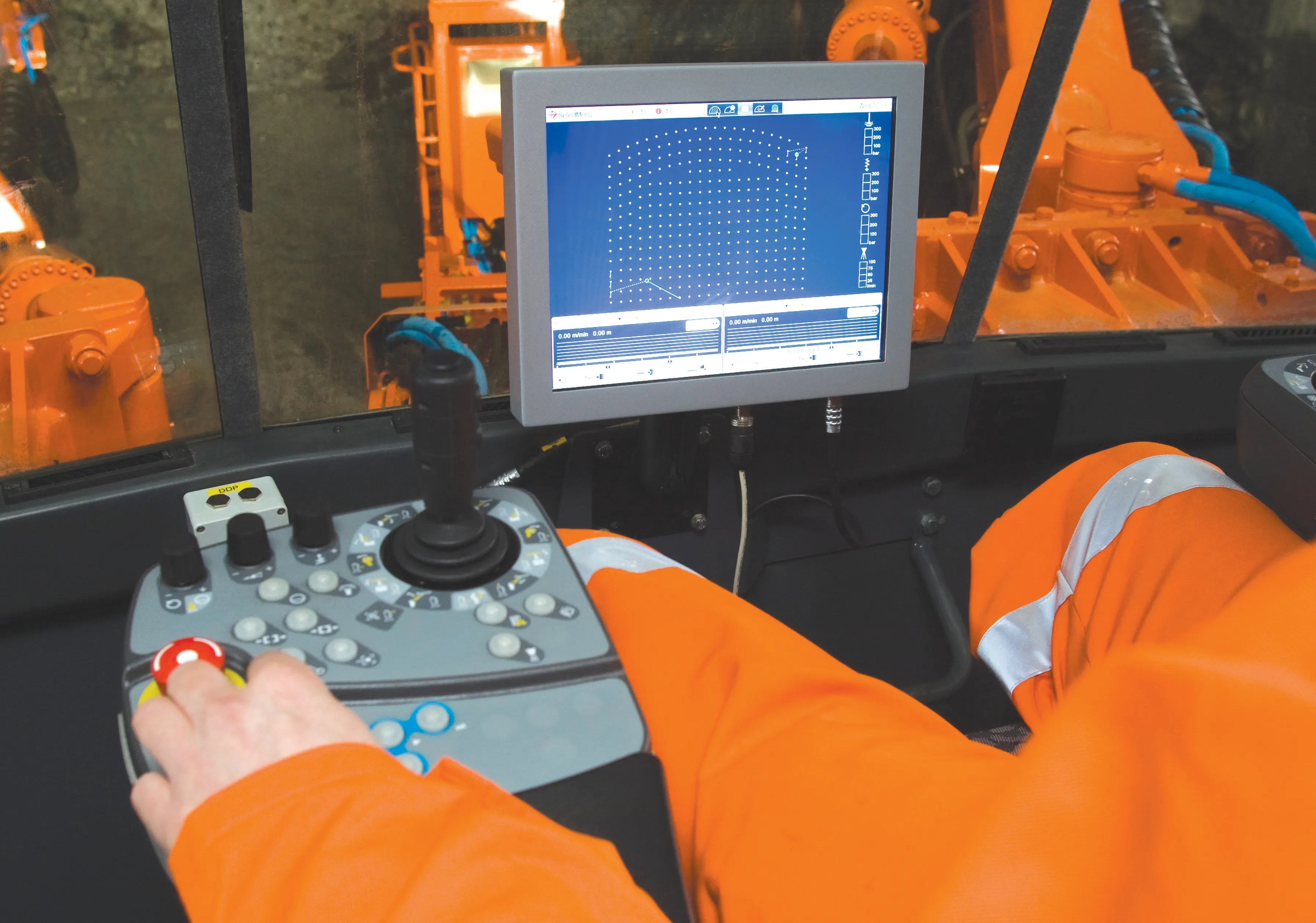
PC Tunnelinject 2K 6822 LV uses the principle of self-injection to push itself further in the crack. The resin is ideal for the consolidation of soil and water sealing of structures with high water flow or pressure, often encountered in tunneling.
In wet structures it increases eight to 10 times in volume and forms a very strong polyurethane foam, according to the company, based in Antwerp, Belgium. In dry structures the product forms a solid mass. When the injection resin is completely cured, PC Tunnelinject 2K 6822 LV becomes 100% watertight and reinforces the treated structure.
The resin has a very low viscosity of 175 mPas average at 20°C that seals even the finest cracks. When it reacts in a solid mass without the presence of water, it has a compression strength around 70 MPa. The strong foaming ensures that less resin needs to be injected to seal voids and cracks.
The product reacts when in contact with water via a pumping effect. As a result, the resin pushes itself deeper into the porous rock or concrete structure that needs to be reinforced.
Apart from general void filling, uses include sealing water leakages with high water ingress in shafts, tunnels and mines. It can be used for soil consolidation when encountering high water flow/pressure during excavation of tunnels and other concrete infrastructure. It will also help stabilisation and water sealing of deep drill holes, porous rocks, sand, ground, brick and concrete constructions.
Tradecc also recently announced that its PC Leakinject Hydrogel 6880 is now CE-certified for the European market. The company says that the low viscous, single component, hydrophilic, MDI-based injection resin doesn’t need the addition of a catalyst. The product reacts with water and forms a flexible, closed cell foam.
Leakinject Hydrogel 6880 can be injected pure, directly into a leaking crack, fracture or joint or it can be injected mixed with water, for example in a ratio 1/1. After injection has taken place, it will foam to expand and fill the void, forming a tight impermeable polyurethane seal.








